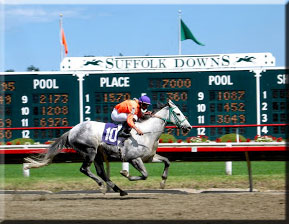Massachusetts Gambling Laws
Gambling Defined by Massachusetts
Historically, gambling was a popular pastime for colonists. Massachusetts was certainly not immune to its influence on recreation and culture. Much like in other states and even cities in New England, there has tended to be a continual controversy and debate over gambling; whether it’s a public good (for recreational and other purposes) or not. For instance, like other states with lotteries, Massachusetts is a state that has found that gambling, at least with respect to lotteries can be beneficial, especially when proceeds are used to fund the educations of worthy students who wouldn’t otherwise be able to afford higher education. Regulated (gambling) activity in the state bolsters economic activity, which is most certainly a public good.
Regarding the more technical aspects of the law, Massachusetts is unique because it refers to gambling as “gaming.” The state defines gaming [illegal] (gambling) pursuant to Chapter 4, Section 7, which states that it is any act related to lotteries, pools, or bets. So, as one can see, the state more or less takes a default position that all gaming (gambling) is illegal except for that which has been expressly exempted. The state legislates that gaming in public is illegal per Chapter 271, Section 2. Related to this, it is also illegal to own or possess gambling devices. Typically, the ownership or possession of such devices suggests that an individual is involved in the operation of illegal gaming facilities rather than the playing aspect. The laws treats illegal gaming operation more harshly than offenses by players. Per Chapter 271, Section 16A, illegal gaming operation can lead to felony charges and incarceration periods not in excess of fifteen years.
Permitted Gambling
 Parimutuel wagering on horse and dog harness racing is legal in Massachusetts. The State Racing Commission was set up way back in 1934. Once the State Racing Commission was set up, a thoroughbred track called the Suffolk Downs was built. The track continues to operate even today. Harness and greyhound racing are extremely popular with the residents of the state. The Plainridge Racecourses is the only other operating racing facility in the state. In 2012 the State Gaming Commission took over the duties of the State Racing Commission.
Parimutuel wagering on horse and dog harness racing is legal in Massachusetts. The State Racing Commission was set up way back in 1934. Once the State Racing Commission was set up, a thoroughbred track called the Suffolk Downs was built. The track continues to operate even today. Harness and greyhound racing are extremely popular with the residents of the state. The Plainridge Racecourses is the only other operating racing facility in the state. In 2012 the State Gaming Commission took over the duties of the State Racing Commission.
Home poker games are legal as long as it is not being played in a public place or public conveyance. Under Massachusetts gambling law, a home poker game in which one of the players is a trespasser who happens to be on the property is illegal. Players of illegal home poker games can be fined up to $50 and may be sent to jail for up to 3 months. The host of an illegal home poker game can be fined up to $50 and imprisoned for up to a year. A home poker game would be illegal if the host charges a fee or rakes the pot. The players cannot be made to make any contribution in any form and the winner cannot receive anything of value.
Current Stand on Online Gambling
It is currently not illegal, but it is not also expressly legal either.
Massachusetts does not have any laws regarding online gambling.
It does, however, appear that the state is thinking and legislating progressively by allowing lottery play online. Nevertheless, individuals who want to participate in online gaming, ought to do so at their own discretion and after being made aware of all of the relevant gaming laws in the state.
Casinos in Massachusetts
There are no land based casinos (including Indian tribal casinos) in the state of Massachusetts. The state is working on negotiating with the Mashpee Wampanoag tribe to build the first Indian tribal casino in the state.
Federal Law
There is no Federal law that prevents Americans from engaging in online gambling as players. The UIGEA only prohibits American companies from processing payments from online gambling activities.
Recent Developments
Massachusetts currently has no casinos. However, that is apt to change since state legislators are planning to permit the creation of at least one casino. That news, while great for gamblers and the state economy alike, however, can possibly cause undue controversy based on which company will win the so-called grand prize of being awarded permission to open a casino. At present, the state is in talks with members of the Mashpee Wampanoag tribe. The state currently only permits the lottery and instant (scratch) games, but if a casino opens, and is successful, that can likely lead to additional casinos. The believed marquee games for the state’s first casino would be slot machines, which are often a popular gaming activity across the country.
In November 2014, voters will decide on a proposal to repeal the 2011 law that allows the setting up of three resort casinos.
—————
Sources
